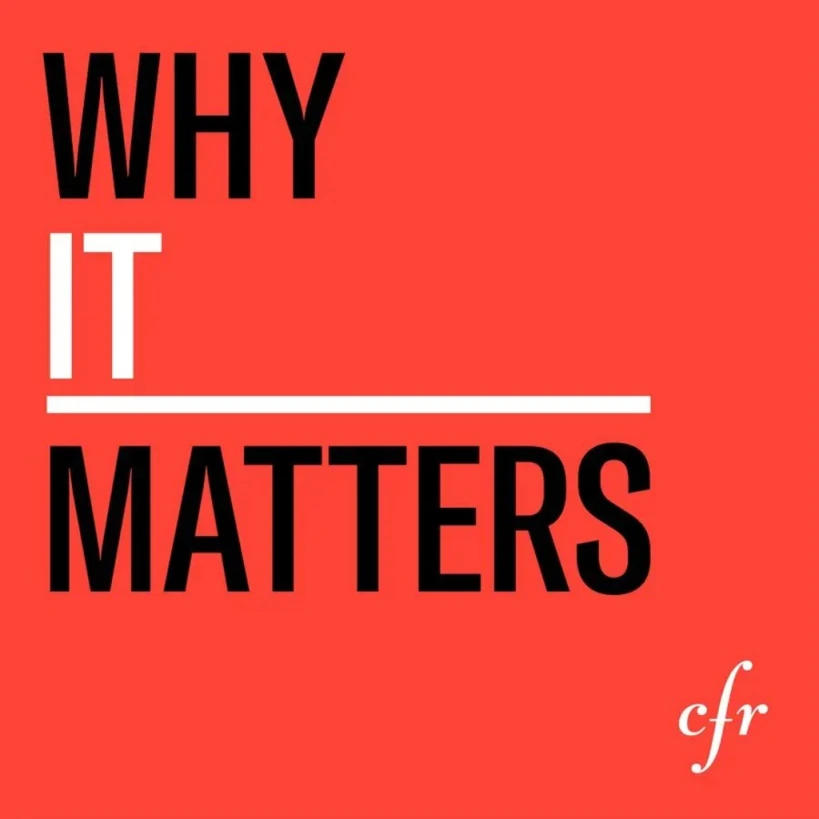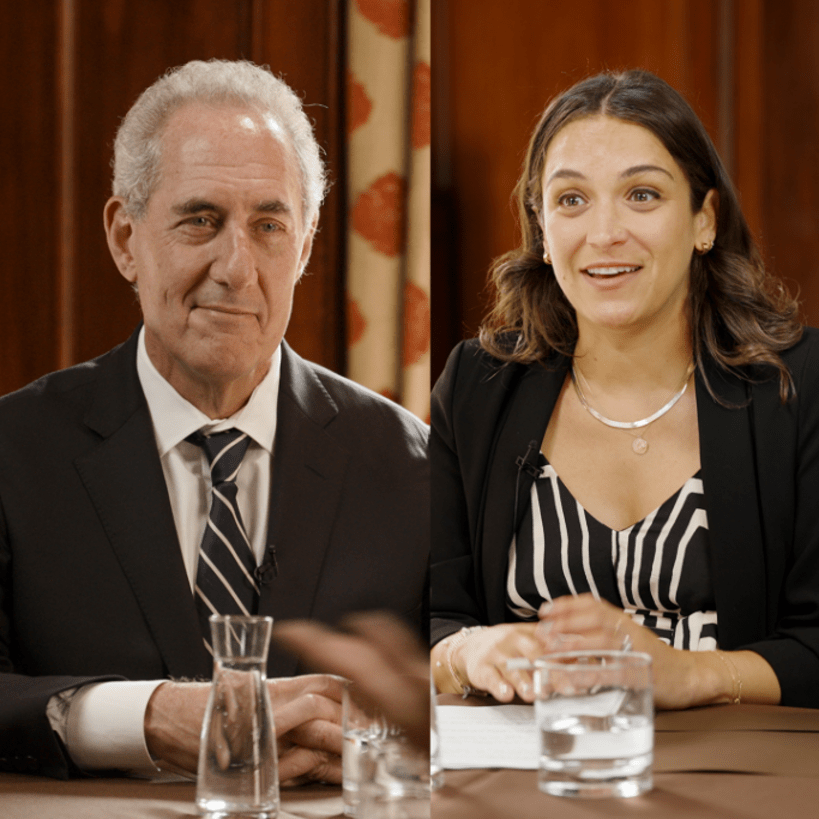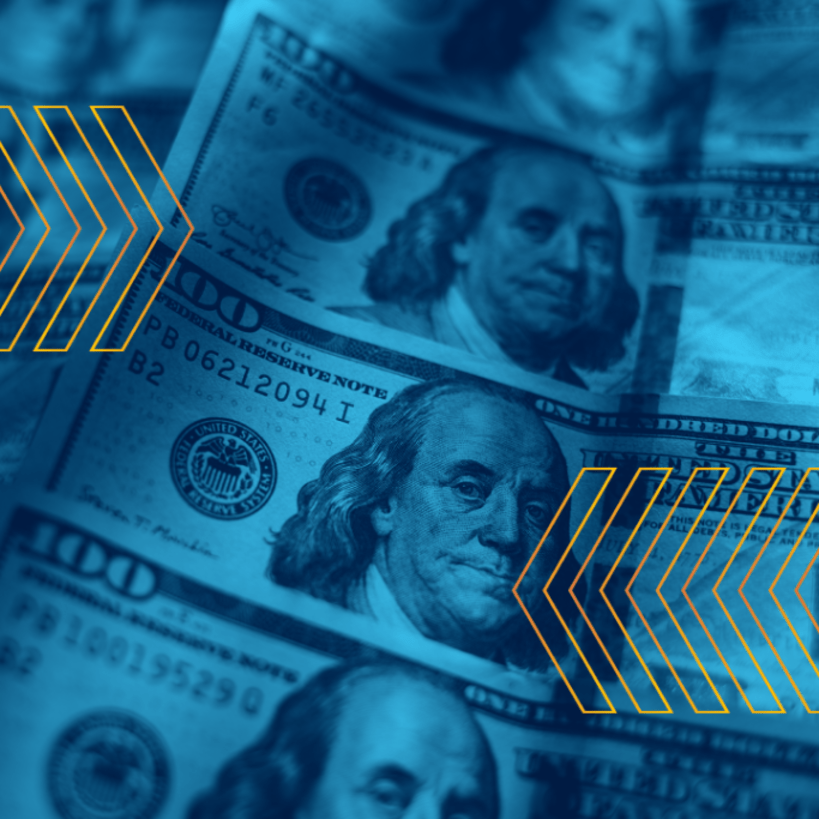Batteries Not Included
The world is moving toward electric vehicles and clean energy, but a green future doesn’t depend on wind turbines, solar panels, and Teslas alone. It will also require a vast supply of advanced batteries. As a result, global demand for lithium—an essential battery ingredient—is outpacing supply, with the gap expected to grow in the years to come.
Published
Host
- Gabrielle SierraDirector, Podcasting
Author
- Frank FannonManaging Director, Fannon Global Advisors
- Vijay V. VaitheeswaranGlobal Energy & Climate Innovation Editor, The Economist
Supervising Producer
- Asher RossLead Content Strategist
Audio Producer and Sound Designer
Associate Podcast Producer
- Rafaela Siewert
Show Notes
Lithium is a lightweight metal used in most rechargeable batteries, from the pocket-sized batteries found in iPhones and computers to the heavy-duty ones that power electric vehicles and home energy storage. This makes it a critical resource in the new energy economy. But there isn’t enough usable lithium to meet growing demand, and some experts fear that the trend threatens our ability to limit global temperature rise to 1.5°C (2.7°F) by 2030.
Corporations, lawmakers, and entrepreneurs are attempting to ramp up capacity, but problematic supply chains and China’s market dominance present significant challenges. Plus, lithium extraction is a messy business, and debate is growing about whether to mine and refine in the U.S.
From CFR
James McBride and Anshu Siripurapu “How Does the U.S. Power Grid Work?”
Shannon K. O’Neil, “U.S. Should Look South for Better Supply Chains”
From Our Guests
Frank Fannon and Michael R. Pompeo, “Time for a Responsible Clean Energy Supply Chain,” Foreign Policy
Frank Fannon, “US needs to lead the way in building a new energy supply chain,” Financial Times
Vijay Vaitheeswaran, “How can the world’s energy be decarbonised?,” Economist
Vijay Vaitheeswaran and Iain Carson, ZOOM: The Global Race to Fuel the Car of the Future, Twelve
Read More
Cade Metz, “Your Batteries Are Due for Disruption,” New York Times
Clifford Krauss, “Green-Energy Race Draws an American Underdog to Bolivia’s Lithium,” New York Times
Ivan Penn and Eric Lipton, “The electric-vehicle race is creating a gold rush for lithium, raising environmental concerns.,” New York Times
Justine Calma, “The US wants to fix its broken lithium battery supply chain,” Verge
Keith Bradsher and Michael Forsythe, “Why a Chinese Company Dominates Electric Car Batteries,” New York Times
MacDonald Dzirutwe and Tom Daly, “China’s Huayou buys lithium mine in Zimbabwe for $422 mln,” Reuters
Mary Hui, “China’s lithium companies are in an investment frenzy,” Quartz
Watch and Listen
“Going Green With Lithium Has Environmentalists Torn,” Vice News
“Lithium 101,” National Geographic
“South America’s Lithium Boom: A Blessing Or A Curse?,” NowThis World
“Will green technology kill Chile’s deserts?,” The Guardian
Transcript
National Geographic: Lithium, a soft, silver-gray metal, is the third lightest element in the universe. Originally discovered in 1817 in a piece of volcanic stone.
PBS NewsHour: We’re standing on some lithium now, right? It’s there, you just can’t really tell it on the surface.
WION: Beneath the desert lies a treasure, the white gold, better known as lithium.
Lithium. Atomic number three on the periodic table. It’s not one of the more famous elements, like gold. But behind the scenes, as countries compete to get ahead in the global energy transition, lithium has become one of the world’s most valuable commodities.
Why? Well it’s an essential ingredient in lithium-ion batteries. Not glamorous, sure. But without those batteries there’s no way to power an electric car, or store energy from wind and solar. As countries transition to a green future, demand for lithium is exploding, and supply just can’t keep up. The world is going to need a lot more of it, and without it, the fight against climate change could come to a grinding halt.
I’m Gabrielle Sierra and this is Why It Matters. Today, lithium and the future of energy.
Gabrielle SIERRA: You know, I don’t personally spend a lot of time thinking about various metals. So why should lithium matter to me or to any of us?
Vijay VAITHEESWARAN: So I also don’t think about metals all the time, but I do think an awful lot about my smartphone and I’ll bet you lots of our audience do as well.
This is Vijay Vaitheeswaran, the global energy and climate innovation editor at The Economist Magazine.
VAITHEESWARAN: They probably also think a lot about the many other gadgets in their lives. And the main battery source to power all of our gadgets and gizmos in modern life, whether it’s the smartphones, to the camcorders, to you name it, these days use lithium-ion batteries. Lithium is particularly attractive to engineers because we’re able to get an enormous amount of energy storage. You can pack 200 watt hours of electrical potential into a single kilogram. That’s a five times improvement on the old lead acid batteries. So in a sense, you get a lot a bang for the buck. The costs have fallen by about 98% for the energy stored in the last 30 years. So it’s a very, very attractive way to store a lot of energy in a small space to power an electronic device.
Batteries that use lithium are easy to recharge and relatively cheap. As a result, your home is probably full of battery-operated objects that contain lithium. But while smartphones and laptops and other gizmos are great and all, the real reason that lithium-powered batteries matter has to do with something way bigger.
Clips: To address climate change, climate change, change, climate change, climate change.
Climate change.
VAITHEESWARAN: It really comes back to this question of energy storage, right? It’s not as glamorous as windmills or even hydrogen, some people like to talk about. Some people like to get into all manner of new technologies for making electricity that are green, but storing it is the other half of the equation. It’s kind of the ugly duckling of the clean energy revolution.
Lithium-powered batteries are fundamental to storing and distributing clean energy. There may be alternatives in the distant future, but right now, there is just no way to make clean energy work without it. And this impacts another sector of the energy transition - electric vehicles.
Ford Motor Company: It’s a driving experience that’s pure, unfiltered exhilaration, from the moment you hit the accelerator. It’s the all-new F-150 Lightning.
According to the US Department of Energy, highway vehicles release about 1.6 billion tons of greenhouse gasses into the atmosphere every year. At the global level, road transport accounts for something like 15 percent of all C02 emissions. And that means electric vehicles have the potential to take a huge bite out of the climate problem.
VAITHEESWARAN: Anybody who cares about climate change will tell you, “Hey, we’ve got to get off of oil.” And the most promising technology for getting off of petroleum in transportation at least for the next 10 to 15 years is electrification and electric cars rely on lithium-ion batteries. There aren’t really a lot of viable substitutes in the short term. So yeah, we’re going to demand a lot more lithium if the electric revolution keeps taking off, like it is, certainly in China, certainly in Europe, to some degree in California and parts of the US with the Teslas and so on. And that’s going to consume ever more lithium to make those batteries.
An EV battery needs around 17-25 pounds of refined lithium to run. That’s enough to power up to 10,000 smartphones.
SIERRA: So I live in New York and I have a license, but I don’t drive. So I kind of feel like I don’t have a grasp on the role they’re playing in car sales. So currently in the US, how many car sales are EVs?
Frank FANNON: Yeah. EVs are a tiny portion of the overall vehicle fleet. I mean, globally, it’s not even double digits.
This is Frank Fannon. Frank served as Assistant Secretary of State for Energy Resources, and he is also Managing Director at Fannon Global Advisors. And he’s right. Despite the flashy commercials, EVs accounted for just 3% of total sales in the U.S last year. But that hasn’t stopped leaders from setting ambitious goals.
Joe Biden/Guardian News: Now that’s why today I’m signing an executive order setting out a target of 50% of all passenger vehicles sold by 2030 will be electric.
FANNON: There has to be an exponential growth in demand. And one of the things that the automakers are doing, is they’re putting real money behind this, in this conversion. I mean, some of these announcements that they’re going to exit the internal combustion engine within the 10 to 15 years, depending on the company, is an absolute tremendous scaled sea change.
SIERRA: So it sounds like they aren’t a big part of car sales yet, but car makers and governments are basically planning for them to become the dominant model in the near future.
FANNON: Absolutely. And this is a global phenomenon. And there’s an appropriate amount of attention here at home in the United States. But the biggest by far market for electric vehicles isn’t the United States, it’s China.
MSNBC: Tonight Ford just announced that they are hiring 11,000 new employees. 11,000 new jobs.
Bloomberg Markets and Finance: They’re gonna ramp up their spending, but to the tune now of $20 billion dollars to quicken their EV production.
CBS Evening News: Ambitious declaration from the CEO of General Motors tonight, the auto giant making plans to spend $35 billion dollars on EVs over the next 4 years.
All of these cars will need a lot of lithium, and if we don’t have enough supply, it could halt the momentum.
FANNON: Lithium is really bespoke to electric vehicle technology and some other battery storage types of solutions. It’s really instrumental to whether we can achieve the targets. And there’s billions of dollars being invested in this. All of those investments are dependent on a stable, secure supply of lithium. Right now demand is far exceeding supply by something like three to one. I don’t think we’ve reconciled this quite yet. But just the scale of this demand-supply gap, according to a firm out of London called Benchmark Minerals Intelligence, they’ve assessed that in order to achieve the Glasgow Declaration by 2040, would require 17 times more battery quality lithium to be developed than is produced last year in 2021.
Did you get that? 17 times more lithium than the world currently produces.
FANNON: So how are we going to achieve this is a huge, huge challenge. And the other challenge we have is the time it takes to develop one of these projects. You can’t just go to the store, like you can go to the store and buy a new phone or go to the Tesla showroom and buy a car. It takes a long lead-time to develop some of these mining projects. And we are playing catch up.
SIERRA: So I guess this is when I ask you, how do we get lithium?
VAITHEESWARAN: There’s plenty of lithium. That’s the good news. There’s not enough lithium. That’s the bad news. A handful of countries lead the production of lithium in the world. Bolivia probably has the biggest resources in the ground and Chile and Argentina, its neighbors, together they make up what’s called the Lithium Triangle. They have lots and lots of resources in the ground. But Australia is actually the biggest producer as a mining country. They know how to do it, and they make their lithium available to the world quite economically. China has lithium that it produces, although it’s not one of the biggest producers. And so does the United States, although we’re not one of the big producers either. There are two main ways you get lithium. Lithium is mined out of a rock. That’s the Australian approach, it’s found in deposits over there in that way. In South America, they get lithium in a different way. It’s actually kind of cool. They have these salt flats. These massive occurrences of lithium that are underground. So you drill through a layer of salt in order to get the lithium out, and then you have to evaporate it in these giant pools of water, for many months at a time. So it’s slow, it’s complicated, it’s environmentally messy, and it’s not easily replicated in other parts of the world or other places.
FANNON: So you have the mining of the material, but that’s just a raw rock, or kind of dust in a bag that provides no useful purpose at all. Just like if you drill in West Texas and have oil, it’s not useful for anything. You can’t put that in your car and drive. So too is the raw commodity of lithium. What you need to do is go forward and refine it, process it, and go through these stages, till it meets a certain type of quality, that then can be useful.
And while there is lithium all over the world, this refinement process is largely controlled by one country.
FANNON: China controls more than 60% of the global processing capacity for lithium. That degree of concentration represents a material volatility, potentially in the price, but also an oversized degree of control over our collective clean energy future. China’s focus on this is a decade in the making plus. And they’ve been remarkably successful. China’s focus on these clean energy technologies is really one of security. They want to control the commanding heights of the new economy. And that is very much tied to the clean energy economy.
VAITHEESWARAN: They have some lithium themselves, but they’re a huge importer from other countries like Australia and from the South American countries. And the reason is they’ve built the supply chain and the manufacturing processes. They have developed a process for making lithium-ion batteries at scale, a manufacturing process that consumes lithium as an input. And so they’ve got the electrochemical know-how. They also have relatively cheap labor, relatively lax environmental rules compared to Europe or the US. But to their credit, they also have lots of engineering sophistication, especially in electronics manufacturing at scale, which is why they were able to develop, for example, solar panels and transform the global solar industry by bringing that to scale. The electric vehicle business, which is related to lithium-ion batteries, but not the same of course, they have EVs at scale because they’re able to manufacture them and consume them. And in the same way, they’ve been able to do the world a service to some degree by producing lithium-ion batteries at massive scale, reducing the costs so that everyone in the world can benefit from this technology. However, it does give them market power.
China’s dominance in the market is a clear economic advantage. But some observers think it goes further than that.
SIERRA: What are the geopolitical risks then that you see in terms of China’s dominant market position?
FANNON: President Biden, from the steps of Glasgow, during the climate conference of the parties, saw how oil prices were increasing. And it was creating challenges at home. No US driver wants to see high gas prices. And so President Biden called on OPEC, to increase production to lessen prices. OPEC is a multi-country organization that controls about 40% of global oil production. However, China controls anywhere from 50 to 90% of the minerals and the processing capability for the clean energy transition. So just the concept of reliance on one sole supplier creates volatility in price. And that should be concerning for all of us. Then if you put on top of that, that China consistently is demonstrating itself to be America’s and the West’s writ large, greatest strategic threat. This opens up a whole new area when we are transitioning our economy from energy that we have an abundance of, in the case of oil and gas, to one in which we are in a deficit. And we would be extraordinarily reliant on our greatest strategic threat. That should give us all pause.
SIERRA: So are there incidents from the past that might illuminate how China could wield its market position?
FANNON: China in the case of rare earth elements, rare-earth elements is a grouping of elements and metals, and minerals that are used in magnets and different things, everything from wind turbines to electric vehicles. So they’re crucial, but they’re not a big market. China became the world’s leader in rare earth production and processing, a lot of it because it’s environmentally pretty nasty stuff. And China has a different standard set. In 2010, China wielded its might in its dominance of the rare earth supply chain, over Japan specifically. The two countries had been at odds over fishing rights. Japan took one of the Chinese fishing vessels, took the captain in. China didn’t like it. And so they withheld rare earth element shipments to Japan. The prices globally went up over 300% in a few days. So China has wielded its power and demonstrated to the global market back in 2010. More recently, just a few years ago, during the height of the US-China trade war as it was called. President Xi Jinping visited a rare earths plant in China through state media, and the price jumped just then, and everyone was talking about the possibility for a ban to the United States. That would completely stymie US and Western security, as well as the clean energy transition.
China’s dominance in lithium is growing in many ways at once. They own a lot of lithium deposits across the world, and are buying up more. They excel at processing. And to top it off, China also controls nearly 75% of all lithium battery manufacturing. As of 2020, it had 93 large scale lithium-ion battery manufacturing plants, compared to just 4 in the US.
VAITHEESWARAN: There’s no doubt that having an early leader advantage, first mover advantage, in an important industry of the future is helpful. And you can see that again with the spillover into their electric cars, which use lithium-ion batteries for energy storage. They’re able to build up a supply chain tightly integrated between those industries, the auto and energy storage industries. And you can imagine other areas where they could gain benefit. That’s different from saying that it’s some kind of monopoly or cartel. There’s nothing stopping the United States or Europe or other aspiring countries from gaining competence and being really good at manufacturing. There’s nothing stopping them from entering into long term contracts, for example, to develop resources of lithium from South America or from Australia. And so if you could give long term certainty and advanced market commitments to purchase lots of lithium from these countries, there’d be much more likely to provide the investment needed to develop their industry. There’s nothing the Chinese can do to stop that.
SIERRA: So with this long term thinking in mind, is this sort of why China has been so successful at mining and refining lithium?
VAITHEESWARAN: There’s a mix of factors. Chinese five year plans are longer term by definition. You know, we don’t really do five year planning in the US government or most other Western democracies. That doesn’t mean they’re always right. They make a lot of bets and a lot of them don’t work out. But in a few strategic areas, at the moment clean energy, biotechnology, and genomics, they’re pretty well advertised. These are published reports. We can all read what the Chinese say they’re going to invest in. And they usually do invest in that area. And it tends to give a little bit more certainty to market actors. But it also lines up the state banks that provide subsidized aid or a nudge, nudge, wink, wink, soft loan to a favorite local company that wants to get into a certain area. Why? Because the party has said it’s a national priority. Even if it doesn’t work out, you’ll be forgiven for lending to a favored area.
Lithium and the EV market spotlight differences between the economic and political systems in China and the US. China’s authoritarian system allows it to set longer-term priorities and support companies financially, even if they need to run losses to meet their strategic goals.
VAITHEESWARAN: So you have this very, I would say supportive network of both official as well as unofficial ways of promoting some of these technologies once the government has sent its signal that they’re going to be supported for a while. Whereas in the kind of Darwinian short-termist capitalism that we tend to find in the US and UK and some other markets, a company that makes the bet wrong or is too early to a market, if you come five years too early to an important market, well that’s as good as not coming to the market at all or coming too late. And your investors won’t forgive you.
It’s unclear how China might wield its market power. But regardless of what it does, many observers believe that it’s time for the US and other countries to diversify the supply chain and ramp up
production in order to meet demand.
VAITHEESWARAN: No company would typically get reliant on one supply source or over overly reliant. And in the same way, we should think more broadly. And if there are things we can do at home to remove obstacles to investment within America, to help scale capital, to get demonstration projects out of the laboratories and out of the national energy labs and Department of Energy and into the marketplace, then we should move much more aggressively on that. And the soundings from the Biden administration are this is what they want to do. I think we’re going to see this year several things coming out of the administration, including international summits I think that’ll be organized around this to focus attention on this, to try to get a framework for reliable access, maybe investment guarantees, maybe trying to depoliticize this issue so that we don’t end up with a situation where one country or another can bully others by guarding access to resources, but rather have an international trade framework, a multilateral framework of access.
These frameworks might also take into account labor conditions and human rights, especially in the Global South where a great deal of lithium resources are currently extracted.
FANNON: A lot of these countries, and particularly in the developing world, are increasingly concerned about doing business with China. They’re desperate for alternatives to find non-Chinese investment. Everyone knows about the Belt and Road Initiative, where they make investments and it’s kind of rapacious. They’ve pursued a similar kind of approach when it comes to mining where it’s just to extract the minerals. There’s no investment in the country, no support of the local community. And it’s really a shovel and ship mentality, where they just come in, take, and then have all the value accretion done in China. So the country is actually left in a worse place than ever before. You know, when it comes to oil, there is a concept of the oil curse or the resource curse, where a country that is oil rich actually ends up becoming worse off after the exploitation of oil. All of that has to do with the linkage to corruption. China is pursuing a policy that’s very much aligned with that, but focused on the minerals for clean energy. It’s the same kind of playbook.
If the US became more active in the lithium supply chain, it would have the opportunity to invest in a more equitable way, especially at home. And that brings us to an option that we haven’t talked about yet.
SIERRA: Do you think that we can mine and refine our own lithium here in the US? I mean, should we?
FANNON: Absolutely, we should. And we have to. To achieve our climate targets, we have to find new sources. And as I mentioned, the US has abundant lithium opportunities, as well as Canada. So yes, we have it, but what we’ve not done is reconciled the license to operate. It takes, according to the International Energy Agency, up to 16 years on average, to go from a mine discovery to production. So if you think about that, the Paris Climate Accord was only about six years ago. We haven’t really started discovering this stuff and developing the mines, and then the processing capabilities. So that’s absolutely critically important. And we have to find new ways to do it. We have to speed it up.
VAITHEESWARAN: There’s no insurmountable barrier in the US to America becoming a clean energy powerhouse that utilizes lithium, makes lithium-ion batteries and ultimately is able to take advantage of the properties that lithium makes possible. Now, what barriers we have, some of them have to do with the nature of our capitalist markets. A second area of course is nimbyism. Lots of people don’t like to have mines developed in their areas, native lands, or even on federal lands. There’s a lot of obstruction and there is some water pollution that results from mining. And so are we going to insist on higher environmental standards or help the latest technologies for environmental remediation be applied from day one to give reassurance to communities that this is not going to be just another toxic mess we’re going to leave in your backyard and someone somewhere else will be driving a fancy electric car thinking that they’re being very green. So getting that right, and we’re not there yet. I think that would help. We’re never going to be as cheap and cheerful as China because frankly they run roughshod over local communities, over capital markets, over environmental concerns, over labor concerns. I don’t think we want to be that country when it comes to making clean energy work. But I think we can do it at a higher quality level. And we might see Europe as for example our competitor or frenemy in this. Europe is forging ahead pretty quickly in this area and we might be able to learn some lessons from the way that Europe is working on this.
SIERRA: Well, it feels like such a funny cyclical sort of argument. Right, where, like, if I was being told that there was going to be a lithium mine in my backyard, I’d be, not too happy about it. But then the argument is that, if we have the lithium, we can use it for clean energy. How do you reconcile that kind of conflict?
FANNON: You’re right. No one wants to have a mine in their backyard. That’s completely reasonable. But every clean energy technology, however clean and green it might be, requires a very big shovel at the beginning of its life cycle. Those shovels have to be deployed, or we’re not going to realize that clean energy future. And, I would say most of all of us want to address climate change in some way. But operationalizing that is much harder than just speaking about a big concept. Environmentalists as well as certain governments want clean energy. But they’re challenged on how to execute. Again, the scale of what we’re talking about, 500% increase in demand for these metals, the trillions of dollars required in investment. If you can’t build something because someone opposes it, however well intentioned some local environmentalist might be, then you’re not going to make that investment. I think that a certain segment of the electric vehicle purchaser is buying that vehicle because they want a product that doesn’t pollute, and that doesn’t emit greenhouse gas emissions. I think having that same consumer, be empowered to understand where their supply chain comes from. And also to compare the way producing that lithium in America would look, and processing that would look, compared to how it’s currently being done. I think this is the kind of awakening that we all need. And that starts really in your backyard. We have to go from a NIMBY, Not In My BackYard, to a YIMBY situation. And this requires taking on very challenging political constituencies at home.
SIERRA: Is that a yes in my backyard?
FANNON: Yes in my backyard. Yes.
One of the first catalysts for climate action was Al Gore’s documentary An Inconvenient Truth. At the time, the main challenge seemed to be convincing people that climate change was real and man-made.
The challenge has evolved. Now that there’s growing recognition about the nature of the problem, focus is shifting to the question of how we actually alter the infrastructure of our world. As this happens, there will be a lot more inconveniences along the way.
This new world of ours needs batteries, and a lot more lithium. If we are going to succeed, someone is going to produce that lithium. Sure, China is currently ahead, and there are a lot of challenges, but the question of who will lead this transition is still up for grabs.
For resources used in this episode and more information, visit CFR.org/whyitmatters and take a look at the show notes.
Have a question or some feedback? Just feel like saying hi? Send us an email at [email protected].
Subscribe to the show on Apple Podcasts, Spotify, Stitcher, or wherever you get your audio. And if you are a fan, we’d love it if you could leave us a review. Ideally a good one, the more stars the better. It really does help us get noticed.
Why It Matters is a production of the Council on Foreign Relations. The show is created and produced by Asher Ross, Jeremy Sherlick, and me, Gabrielle Sierra. Our sound designer is Markus Zakaria. Rafaela Siewert is our associate podcast producer. Our intern is Roshni Rangwani.
Robert McMahon is our Managing Editor, and Doug Halsey is our Chief Digital Officer. Extra help for this episode was provided by Kali Robinson.
Original music is composed by Ceiri Torjussen. Special thanks go to Richard Haass and Jeff Reinke.
For Why It Matters, this is Gabrielle Sierra signing off. See you soon!






